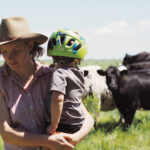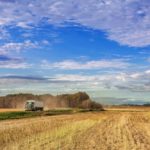The federal government plans to put up $185 million over the next 10 years for farmers to work with scientists and others on new ways to pull carbon out of the air. Agriculture Minister Marie-Claude Bibeau and Environment Minister Jonathan Wilkinson on Thursday announced the Agricultural Climate Solutions (ACS) program, which the government said is













